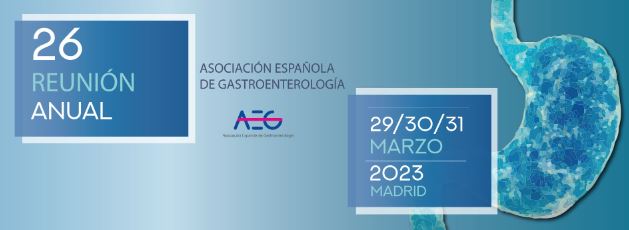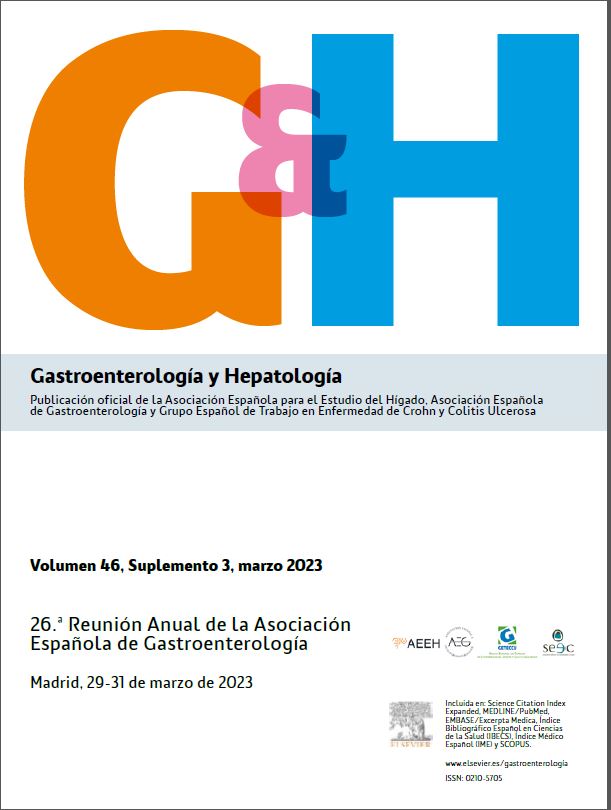SCAVENGER RECEPTOR MARCO IS ASSOCIATED WITH AN IMMUNOSUPPRESSIVE MICROENVIRONMENT AND TUMOR PROGRESSION IN INTRAHEPATIC CHOLANGIOCARCINOMA
1Department of Liver and Gastrointestinal Diseases, Biodonostia Health Research Institute-Donostia University Hospital, University of the Basque Country (UPV/EHU), San Sebastian. 2Biotech Research and Innovation Centre (BRIC), Department of Health and Medical Sciences, University of Copenhagen, Denmark. 3Institute for Vascular Biology, Centre for Physiology and Pharmacology, Medical University Vienna; Christian Doppler Laboratory for Arginine Metabolism in Rheumatoid Arthritis and Multiple Sclerosis, Vienna, Austria. 4CIBERehd, Instituto de Salud Carlos III (ISCIII), Madrid. 5Proteomics Platform, CIC bioGUNE, ProteoRed-ISCIII, Bizkaia Science and Technology Park, Derio. 6TGF-β and Cancer Group, Oncobell Program, Bellvitge Biomedical Research Institute (IDIBELL), Barcelona; National Biomedical Research Institute on Liver and Gastrointestinal Diseases (CIBERehd), Instituto de Salud Carlos III, Madrid; Sorbonne Université, Inserm, Centre de Recherche Saint- Antoine (CRSA), Paris, France. 7Division of Gastroenterology and Hepatology, Mayo Clinic, Rochester, Minnesota, USA. 8IKERBASQUE, Basque Foundation for Science, Bilbao. 9Department of Biochemistry and Genetics, School of Sciences, University of Navarra, Pamplona. 10Department of Medicine, Faculty of Medicine and Nursing, University of the Basque Country (UPV/EHU), Leioa.
Introduction and objectives: Cholangiocarcinoma (CCA) comprises a heterogeneous group of malignant tumors with dismal prognosis. During the last years, different studies have highlighted the key role of the immune system in the development of intrahepatic CCA (iCCA) and several combinational therapies targeting the tumor microenvironment (TME) have shown promising results for anti-cancer therapy. In this regard, the macrophage receptor with collagenous structure (MARCO) is a class A scavenger receptor found on particular subsets of macrophages that has been described to play a determining role in macrophage polarization and consequently in adaptive immune responses in many solid tumors. However, its role in iCCA is still unknown. This study aims to unravel the role of MARCO in iCCA development and progression.
Methods: The cell-type specific MARCO expression was examined in iCCA human tumors by using publicly available single-cell RNA sequencing data from different studies and MARCO-expressing tumor-associated macrophages (TAMs) were phenotypically characterized. MARCO mRNA expression was analyzed in human control and iCCA liver tissue samples and associated to different immune cell types and immune-functionality scores employing state-of-the-art technologies as ConsensusTME, Tumor Immune Dysfunction and Exclusion (TIDE) tool and Tumor Immunophenotype Profiling (TIP). To study the role of MARCO in murine cholangiocarcinogenesis, wild type (WT) and Marco-/- mice were subjected to 3 different iCCA murine models and flow cytometry analysis of the TME was carried out to characterize different lymphocytic and myeloid populations.
Results: Single-cell RNA sequencing data indicate that MARCO is expressed in a specific subtype of TAMs in patients with iCCA. Besides, high MARCO expression levels in the liver samples of patients with iCCA are linked with worse clinical outcome. In line with this, MARCO expression in human iCCA tumors is associated to cell types involved in tumor progression such as M2 macrophages, and related with T cell dysfunction. Regarding the potential role of MARCO in murine models of iCCA, Marco-/- mice show a trend to be protected from iCCA development, the mechanisms behind this effect being likely associated to a reduction of the innate immune cells such as CD9+Ly6C-F4/80+ resident macrophages and type-2 innate lymphoid cells (ILC2). Noteworthy, in a context of a syngenic orthotopic experimental model, Marco-/- mice exhibit a reduced presence of immune checkpoint molecules in innate and adaptive immune cells, including a lower percentage of PD-L1+Ly6C-F4/80+ resident macrophages and, PD-1+ and CTLA-4+ cytotoxic CD8+ T cells in comparison to WT mice.
Conclusions: High MARCO expression is associated to a worse outcome in patients with iCCA and is associated to an immunosuppressive TME. Importantly, Marco-/- mice display a reduced presence of immunosuppressive cell populations. Therefore, MARCO arises as a novel therapeutic target for iCCA.









